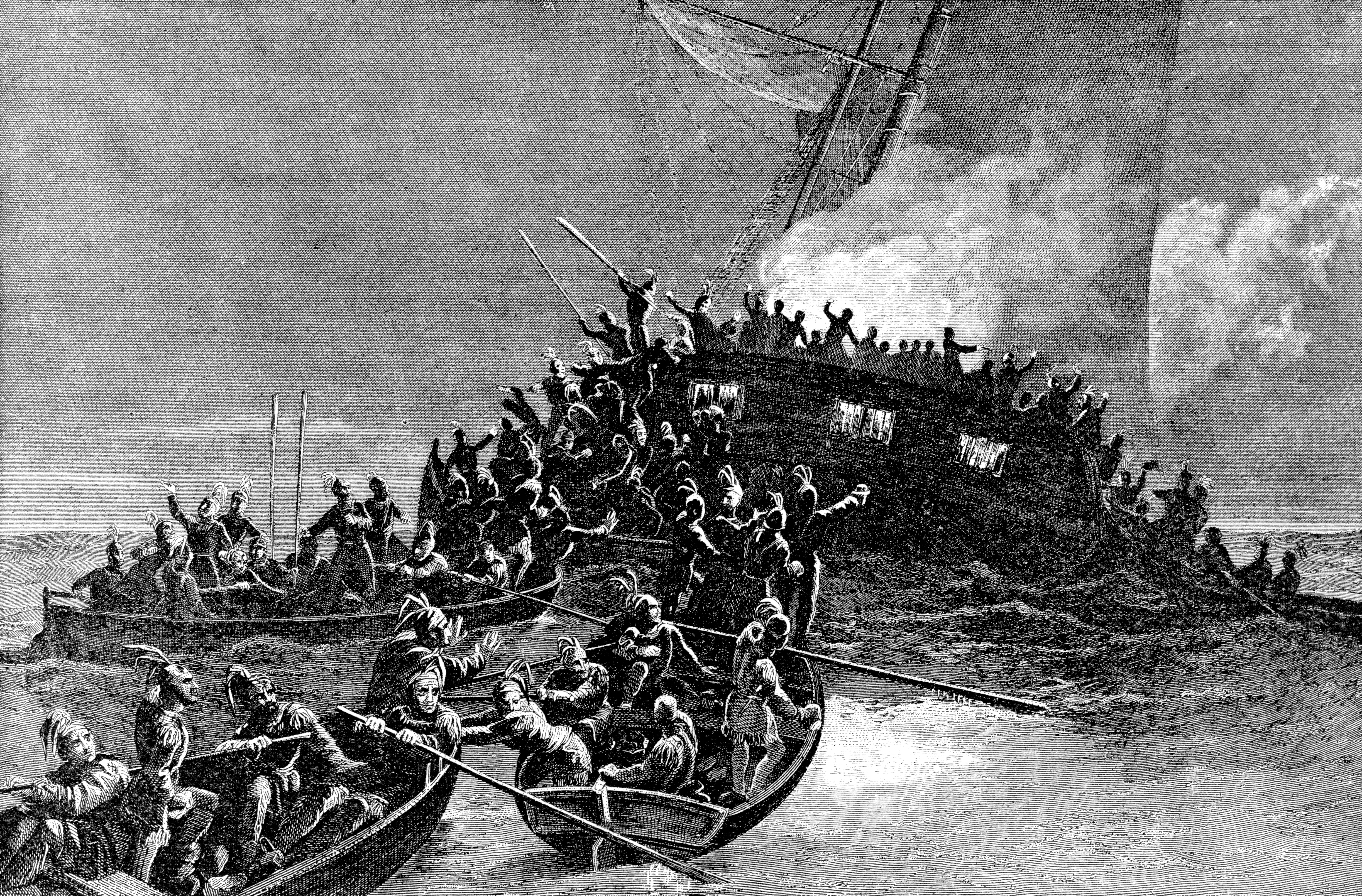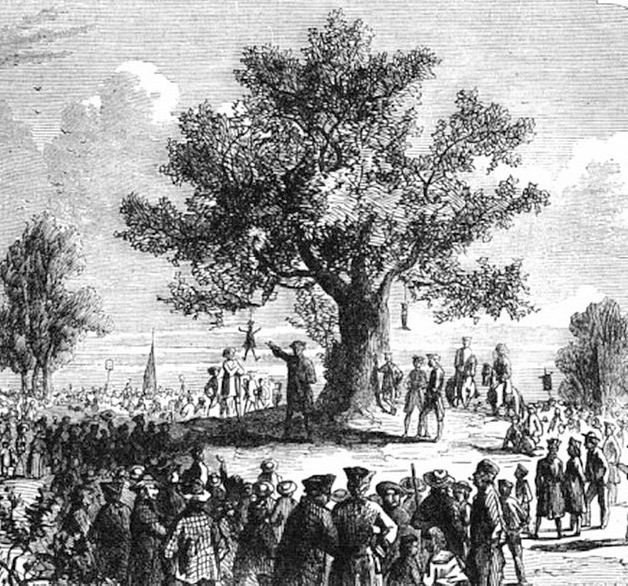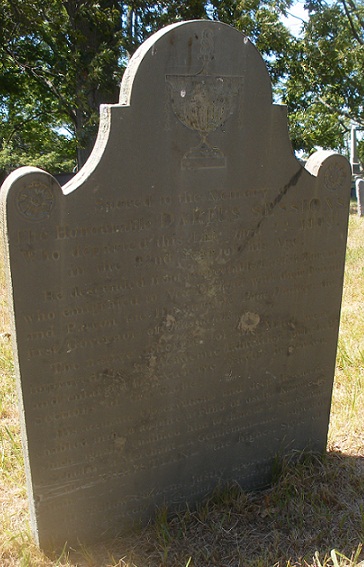|
Gaspee Affair
The ''Gaspee'' Affair was a significant event in the lead-up to the American Revolution. HMS ''Gaspee'' was a British customs schooner that enforced the Navigation Acts in and around Newport, Rhode Island, in 1772. It ran aground in shallow water while chasing the packet ship ''Hannah'' on June 9 near Gaspee Point in Warwick, Rhode Island. A group of men led by Abraham Whipple and John Brown I attacked, boarded, and torched the ''Gaspee''. The event increased tensions between the American colonists and British officials, following the Boston Massacre in 1770. British officials in Rhode Island wanted to increase their control over trade—legitimate trade as well as smuggling—in order to increase their revenue from the small colony. But Rhode Islanders increasingly protested the Stamp Act, the Townshend Acts, and other British impositions that had clashed with the colony's history of rum manufacturing, slave trading, and other maritime exploits. This event and others i ... [...More Info...] [...Related Items...] OR: [Wikipedia] [Google] [Baidu] |
American Revolution
The American Revolution was an ideological and political revolution that occurred in British America between 1765 and 1791. The Americans in the Thirteen Colonies formed independent states that defeated the British in the American Revolutionary War (1775–1783), gaining independence from the British Crown and establishing the United States of America as the first nation-state founded on Enlightenment principles of liberal democracy. American colonists objected to being taxed by the Parliament of Great Britain, a body in which they had no direct representation. Before the 1760s, Britain's American colonies had enjoyed a high level of autonomy in their internal affairs, which were locally governed by colonial legislatures. During the 1760s, however, the British Parliament passed a number of acts that were intended to bring the American colonies under more direct rule from the British metropole and increasingly intertwine the economies of the colonies with those of Britain. ... [...More Info...] [...Related Items...] OR: [Wikipedia] [Google] [Baidu] |
Thirteen Colonies
The Thirteen Colonies, also known as the Thirteen British Colonies, the Thirteen American Colonies, or later as the United Colonies, were a group of British colonies on the Atlantic coast of North America. Founded in the 17th and 18th centuries, they began fighting the American Revolutionary War in April 1775 and formed the United States of America by declaring full independence in July 1776. Just prior to declaring independence, the Thirteen Colonies in their traditional groupings were: New England ( New Hampshire; Massachusetts; Rhode Island; Connecticut); Middle ( New York; New Jersey; Pennsylvania; Delaware); Southern ( Maryland; Virginia; North Carolina; South Carolina; and Georgia). The Thirteen Colonies came to have very similar political, constitutional, and legal systems, dominated by Protestant English-speakers. The first of these colonies was Virginia Colony in 1607, a Southern colony. While all these colonies needed to become economically viable, the ... [...More Info...] [...Related Items...] OR: [Wikipedia] [Google] [Baidu] |
Committees Of Correspondence
The committees of correspondence were, prior to the outbreak of the American Revolutionary War, a collection of American political organizations that sought to coordinate opposition to British Parliament and, later, support for American independence. The brainchild of Samuel Adams, a Patriot from Boston, the committees sought to establish, through the writing of letters, an underground network of communication among Patriot leaders in the Thirteen Colonies. The committees were instrumental in setting up the First Continental Congress, which met in Philadelphia. Function The function of the committees was to alert the residents of a given colony of the actions taken by the British Crown, and to disseminate information from cities to the countryside. The news was typically spread via hand-written letters or printed pamphlets, which would be carried by couriers on horseback or aboard ships. The committees were responsible for ensuring that this news accurately reflected the views, ... [...More Info...] [...Related Items...] OR: [Wikipedia] [Google] [Baidu] |
Patriot (American Revolution)
Patriots, also known as Revolutionaries, Continentals, Rebels, or American Whigs, were the colonists of the Thirteen Colonies who rejected British rule during the American Revolution, and declared the United States of America an independent nation in July 1776. Their decision was based on the political philosophy of republicanism—as expressed by such spokesmen as Thomas Jefferson, John Adams, and Thomas Paine. They were opposed by the Loyalists, who supported continued British rule. Patriots represented the spectrum of social, economic, and ethnic backgrounds. They included lawyers such as John Adams, students such as Alexander Hamilton, planters such as Thomas Jefferson and George Mason, merchants such as Alexander McDougall and John Hancock, and farmers such as Daniel Shays and Joseph Plumb Martin. They also included slaves and freemen such as Crispus Attucks, one of the first casualties of the American Revolution; James Armistead Lafayette, who served as a double a ... [...More Info...] [...Related Items...] OR: [Wikipedia] [Google] [Baidu] |
Handspike
A handspike is a metal bar or pipe that is used as a lever for prying or leverage, similar to a crowbar. Handspike is also an archaic term for a bar or lever, generally of wood, used in a windlass or capstan, for heaving anchor, and, in modified forms, for various other purposes.Oxford English Dictionary Second Edition on CD-ROM (v. 4.0) © Oxford University Press 2009 On the Calder and Hebble Navigation The Calder and Hebble Navigation is a broad inland waterway, with locks and bridgeholes that are suitable for boats, in West Yorkshire, England. Construction to improve the River Calder and the River Hebble began in 1759, and the initial sch ... in England, a handspike in the form of a length of 2-by-4-inch (5 by 10 cm) timber shaped at one end to provide a comfortable two-handed grip is used to operate the winding gear of some of the locks. References Hand tools {{Tool-stub ... [...More Info...] [...Related Items...] OR: [Wikipedia] [Google] [Baidu] |
Destruction Of The Schooner Gaspee
Destruction may refer to: Concepts * Destruktion, a term from the philosophy of Martin Heidegger * Destructive narcissism, a pathological form of narcissism * Self-destructive behaviour, a widely used phrase that ''conceptualises'' certain kinds of destructive acts as belonging to the self * Slighting, the deliberate destruction of a building * Final destruction ( End of the World) Comics and gaming * Destruction (DC Comics), one of the Endless in Neil Gaiman's comic book series ''The Sandman'' * Destructoid, a video-game blog Music * Destruction (band), a German thrash metal band * '' ''Destruction'' (EP)'', a 1994 EP by Destruction * "Destruction" (song), a 2015 song by Joywave * "Destruction", a 1984 song by Loverboy featured in Giorgio Moroder’s restoration of the film ''Metropolis'' * "The Destruction", a song from the 1988 musical '' Carrie'' Television and film * "Destruction" (UFO), a 1970 episode of ''UFO'' * ''Destruction'' (film), a 1915 film starring Theda Ba ... [...More Info...] [...Related Items...] OR: [Wikipedia] [Google] [Baidu] |
Stephen Hopkins (politician)
Stephen Hopkins (March 7, 1707 – July 13, 1785), a Founding Father of the United States, was a governor of the Colony of Rhode Island and Providence Plantations, a chief justice of the Rhode Island Supreme Court, and a signer of the Continental Association and Declaration of Independence. He was from a prominent Rhode Island family, the grandson of William Hopkins who was a prominent colonial politician. His great grandfather Thomas Hopkins was an original settler of Providence Plantations, sailing from England in 1635 with his cousin Benedict Arnold who became the first governor of the Rhode Island colony under the Royal Charter of 1663. As a child, Hopkins was a voracious reader, becoming a serious student of the sciences, mathematics, and literature. He became a surveyor and astronomer and was involved in taking measurements during the 1769 transit of Venus across the Sun. He began his public service at age 23 as a justice of the peace in the newly established town ... [...More Info...] [...Related Items...] OR: [Wikipedia] [Google] [Baidu] |
Darius Sessions
Darius Sessions (17 August 1717 – 27 April 1809) was a deputy governor of the Colony of Rhode Island and Providence Plantations during the buildup to the American Revolutionary War. He was heavily involved in moderating the effects of the ''Gaspee'' Affair, and was instrumental in keeping the perpetrators from being identified. Early life Born in Pomfret, Connecticut, Sessions was the son of Nathaniel Sessions and Joanna Corbin. His family was fairly well-to-do, and owned a lot of land in eastern Connecticut. Sessions attended Yale College, graduating in 1737, and subsequently worked in Rhode Island in the mercantile business. In 1746, during King George's War, he was part owner of the privateer sloop ''Reprisal''. Later, in 1750, he was the master of the schooner ''Smithfield'', working in the West Indies. He was also likely involved in the distillery business of his father-in-law, William Antram, who had a stillhouse just north of Sessions' home in Providence. A ... [...More Info...] [...Related Items...] OR: [Wikipedia] [Google] [Baidu] |
Oxford University Press
Oxford University Press (OUP) is the university press of the University of Oxford. It is the largest university press in the world, and its printing history dates back to the 1480s. Having been officially granted the legal right to print books by decree in 1586, it is the second oldest university press after Cambridge University Press. It is a department of the University of Oxford and is governed by a group of 15 academics known as the Delegates of the Press, who are appointed by the vice-chancellor of the University of Oxford. The Delegates of the Press are led by the Secretary to the Delegates, who serves as OUP's chief executive and as its major representative on other university bodies. Oxford University Press has had a similar governance structure since the 17th century. The press is located on Walton Street, Oxford, opposite Somerville College, in the inner suburb of Jericho. For the last 500 years, OUP has primarily focused on the publication of pedagogical texts ... [...More Info...] [...Related Items...] OR: [Wikipedia] [Google] [Baidu] |
John Montagu (Royal Navy Officer)
Admiral John Montagu (1719–1795) was an English naval officer and colonial governor of Newfoundland. Naval career He was born in 1719, son of James Montagu of Lackham, Lacock, Wiltshire (died 1747), and great-grandson of James Montagu of Lackham (1602–1665), third son of Henry Montagu, 1st Earl of Manchester. Montagu began his naval career in the Royal Naval Academy, Portsmouth on 14 August 1733. He was promoted lieutenant in 1740 and served on and, in 1744, was present at the Battle of Toulon. In 1757 he was present at the execution of Admiral John Byng. Promoted to Rear-Admiral in 1770, he served as Commander-in-Chief of the North American Station from 1771 to 1774. In March 1772, Montagu was involved in the Gaspee Affair as the commanding officer of Lieutenant William Duddingston, where he unsuccessfully tried to identify and have prosecuted the raiders who attacked Dudingston's ship. He was promoted Vice-Admiral in 1776 and then appointed Governor and commander-i ... [...More Info...] [...Related Items...] OR: [Wikipedia] [Google] [Baidu] |
Rhode Island Royal Charter
The Rhode Island Royal Charter provided royal recognition to the Colony of Rhode Island and Providence Plantations, approved by England's King Charles II in July 1663. It outlined many freedoms for the inhabitants of Rhode Island and was the guiding document of the colony's government (and that of the state later) over a period of 180 years. The charter contains unique provisions which make it significantly different from the charters granted to the other colonies. It gave the colonists freedom to elect their own governor and write their own laws, within very broad guidelines, and also stipulated that no person residing in Rhode Island could be "molested, punished, disquieted, or called in question for any differences in opinion in matters of religion". The charter was not replaced until 1843, after serving for nearly two centuries as the guiding force of the colony and then the State of Rhode Island and Providence Plantations. Historian Thomas Bicknell described it as "the g ... [...More Info...] [...Related Items...] OR: [Wikipedia] [Google] [Baidu] |







.jpg)